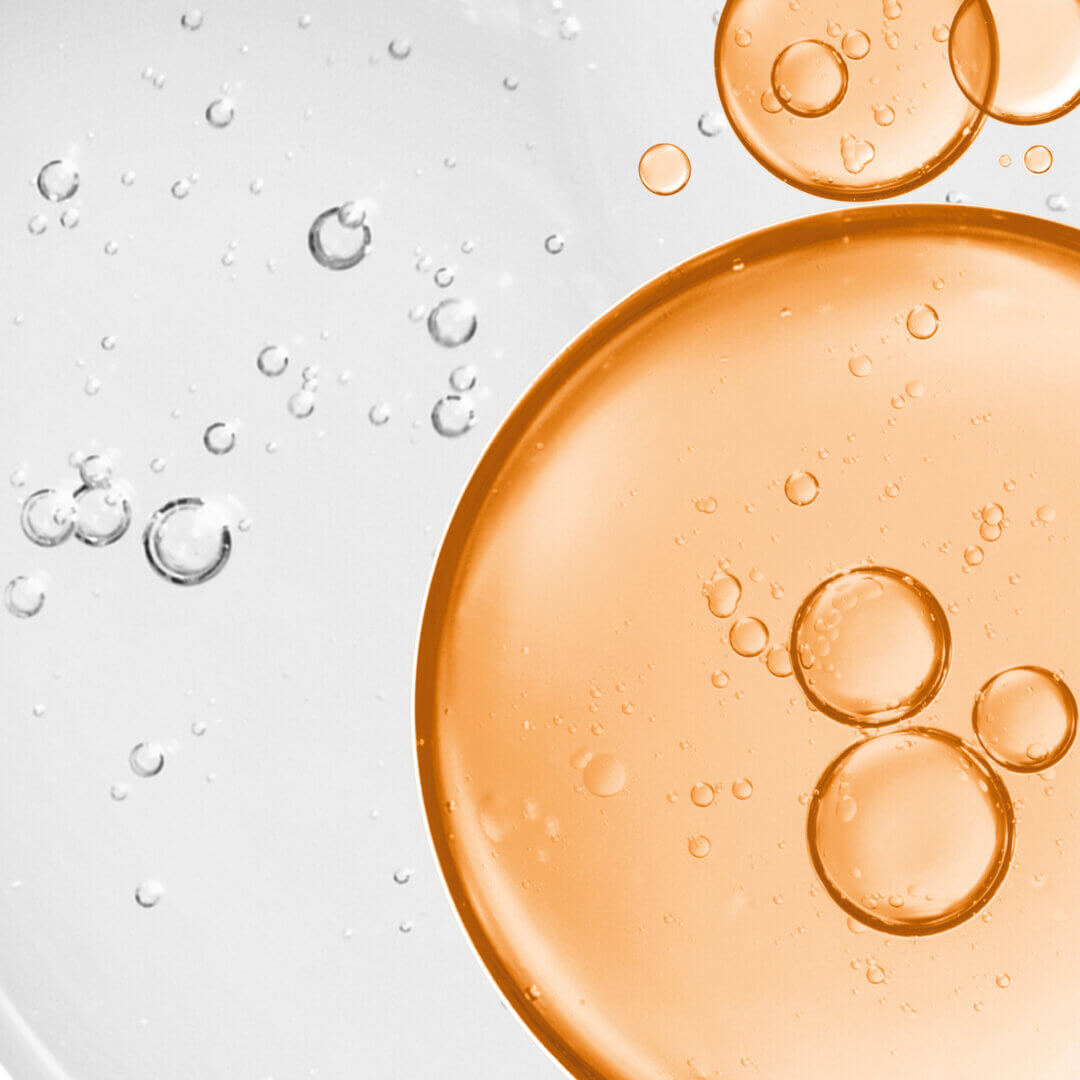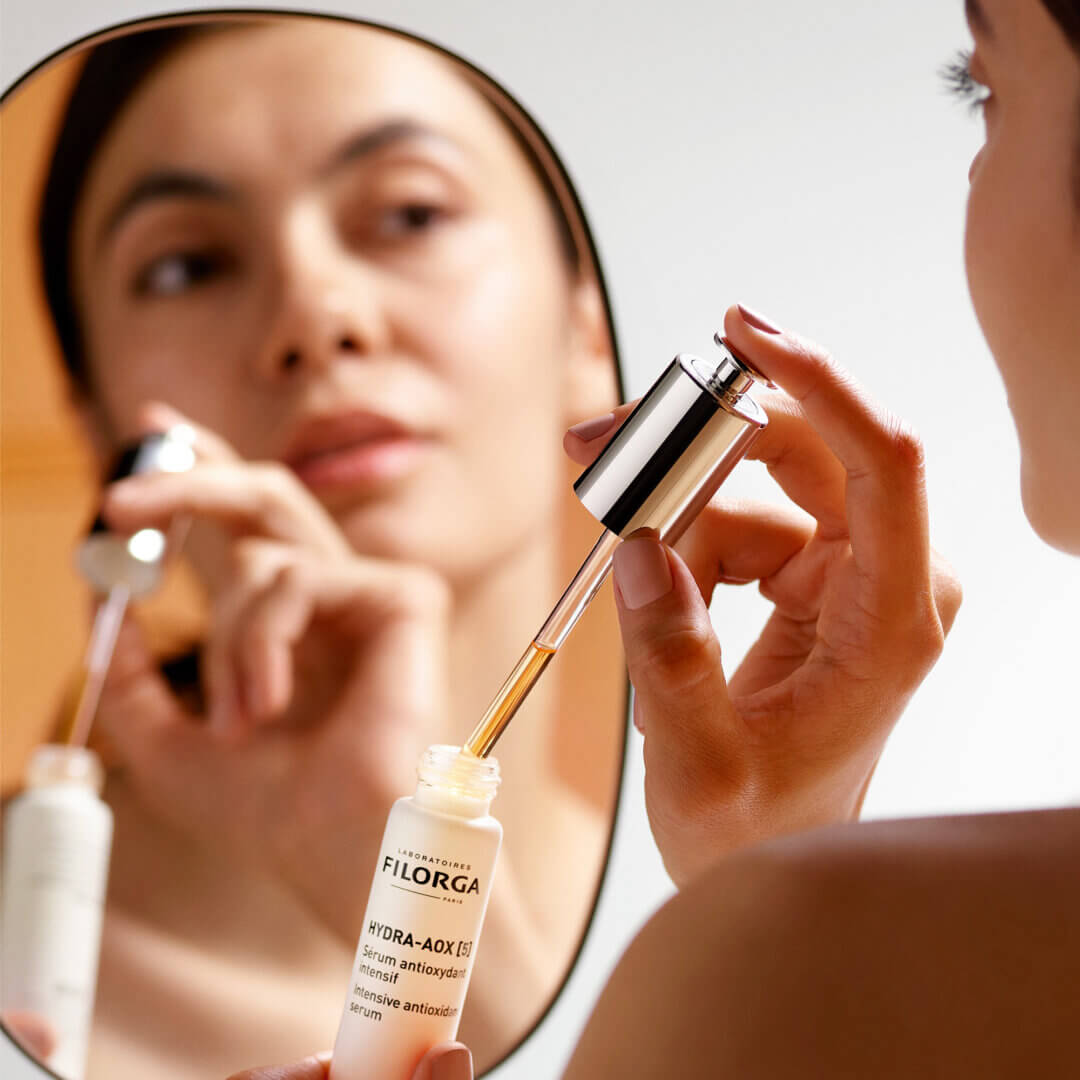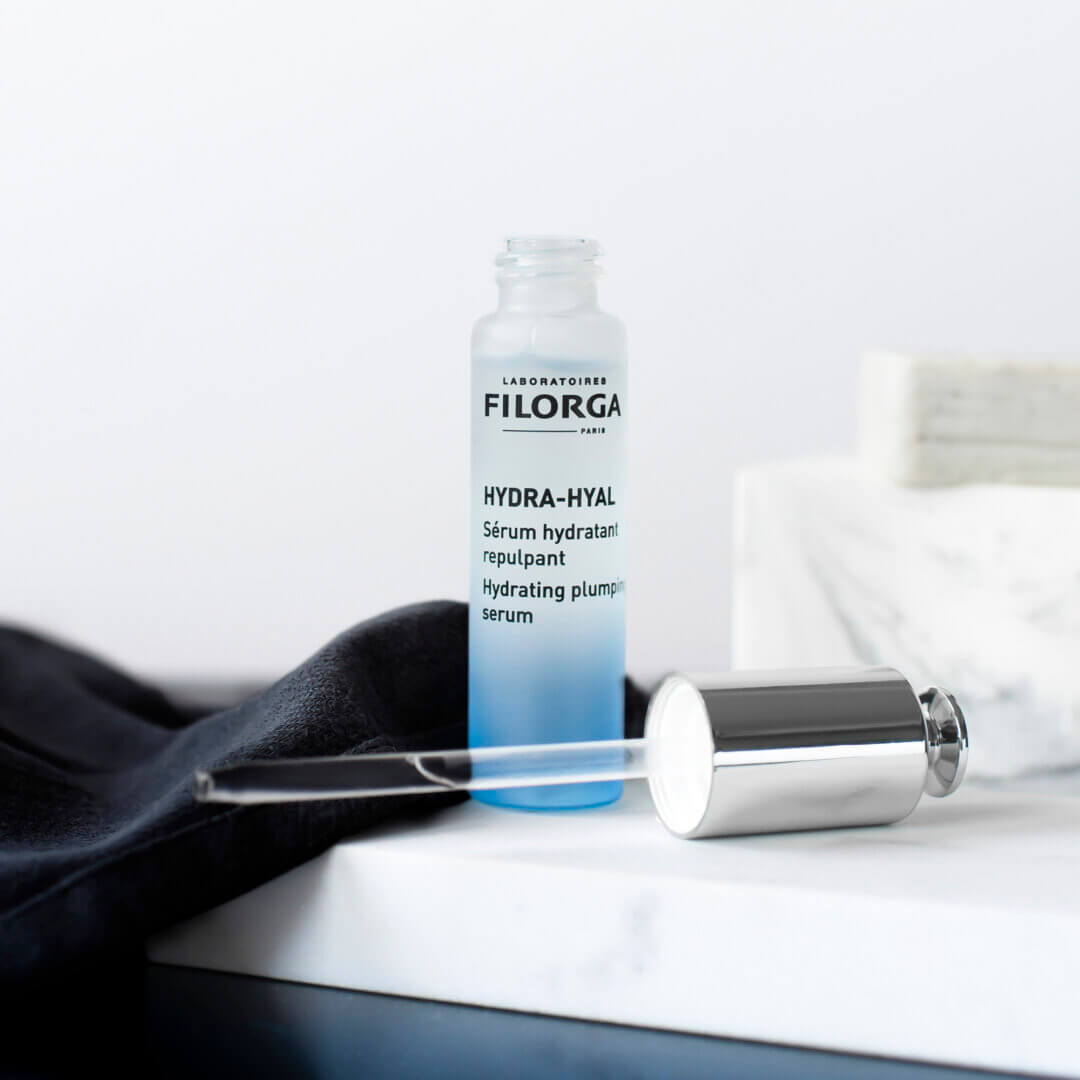
Hyaluronic acid or vitamin C: which should you choose for your skincare needs?
November 12, 2024 - Beauty tips
Hyaluronic acid and vitamin C are both active ingredients suitable for all skin types and are widely used in cosmetics. Should you choose just one of these ingredients, or can you combine them for better results and more radiant skin? This article has the answers you’re looking for.
Hyaluronic acid's beneficial effects on the skin.
What is hyaluronic acid?
First discovered in 1934, hyaluronic acid has been used in skincare products for around 30 years. This long molecule belongs to the carbohydrate family and has fast become a major cosmetic ingredient.
It is naturally present in the skin, primarily in the dermis where it is produced by cells called fibroblasts.
What effects does hyaluronic acid have on the skin?
Hyaluronic acid stands out for its ability to retain a lot of water. There are different types (link to the relevant article when it is published in August) that vary in structure and molecular weight. Hyaluronic acid with a higher molecular weight is less able to penetrate the deeper layers of the skin and thus remains on the surface.
Hyaluronic acid’s properties mean it has several effects:
-
Moisturising: once it reaches the deeper layers of the skin, it acts like a sponge. It serves as a kind of moisture reservoir because it can absorb tens of times its own weight in water.
-
Plumping: by retaining water, hyaluronic acid increases in volume and fills more intercellular space, helping to smooth out wrinkles.
-
Replenishing: by stimulating cell proliferation, hyaluronic acid enables skin cells to rapidly and extensively multiply. It also stimulates the endogenous production (i.e. produced naturally by the body) of hyaluronic acid and collagen.
-
Protecting: by forming a protective film on the epidermis, hyaluronic acid helps defend against external stresses and reduces the evaporation of moisture from the skin.
Why use a treatment containing hyaluronic acid ?
Hyaluronic acid in the skin deteriorates very quickly. After 24 hours, half of the amount contained in the skin is depleted. While younger skin is capable of regenerating its stocks to make up for this loss, the same cannot be said of older skin. This is because we synthesise progressively less hyaluronic acid as we age — about 10% less every 10 years. The quality of our hyaluronic acid also declines, with reduced filling capacities and moisturising and protective qualities.
Applying a treatment containing hyaluronic acid once or twice a day is therefore vital if you want to preserve the radiance of your skin and prevent the signs of ageing.
Vitamin C: a potent antioxidant
What is vitamin C?
Vitamin C, or l-ascorbic acid, is a molecule that is highly valued as an anti-ageing ingredient and antioxidant. It is a water-soluble vitamin, meaning it can be dissolved in water. Our bodies get it from food, particularly fruit (especially kiwis, citrus fruits, and blackcurrants), vegetables (like bell peppers and broccoli), and herbs and spices (like parsley, paprika, and thyme).

What effects does vitamin C have on the skin?
Vitamin C is an antioxidant with a host of benefits:
-
It combats oxidative stress and free radicals.
-
It boosts the production of elastin and collagen, the two proteins that provide the skin elasticity and tone.
-
It strengthens the epidermal barrier.
-
It combats the development of skin blemishes by regulating melanin production.
Why should you include vitamin C in your skincare routine?
There was a time when it was possible to satisfy our vitamin C requirements through our diet. But nowadays, our food actually contains very little vitamin C due to modern production methods and the amount of processing it undergoes.
Laboratoires FILORGA’s experts therefore recommend using creams and serums containing vitamin C as a supplement to dietary intake in order to help combat the signs of skin ageing.
So do you need to choose between hyaluronic acid and vitamin C ?
Absolutely not! These two active ingredients have different qualities and behaviours, as we’ve seen above. This means they are highly complementary, and combining them will provide great results.
For a comprehensive anti-ageing skincare routine, we recommend the following two FILORGA treatments:
-
Our HYDRA-AOX [5] antioxidant serum : a unique preventive treatment containing 5 powerful antioxidants, including vitamin C.
-
Our HYDRA-HYAL moisturising and plumping serum : a complex with 5 forms of hyaluronic acid that moisturises, smoothes, and plumps up the skin.
